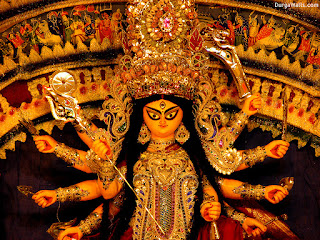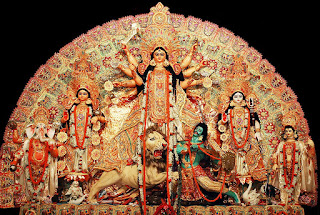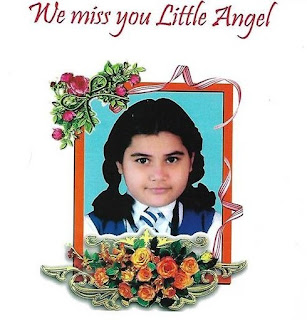The Autumnal drums’ frenzy peaks,
the corn ears of ripening paddy
sway in the breeze in happy pregnancy
the earth moist and
wet is now ready
to receive you goddess for your stay
for nine nights of fond revelry.
The city, the street corners and homes
resonate with prayers for your victory
you have come to trounce evil and
vile demons and celebrate the end of sin.
The Trinity created you to raise
the victory flag over evil and guile
teach us O’Mother the courage and
strength to fight the
earthly demons
which we encounter at home and abroad
and infuse in us power to fight back
all onslaughts of untruth and deceit.
Teach us to walk on the path shown by you
grant us wisdom and light and bless
the earth with seeds of hope
fill the earth with your fragrance
fet this year be the year of plenty
turn the world into a beautiful event
for mankind to remember in tuneful
measures of joy and gratitude.Sabita sahu










